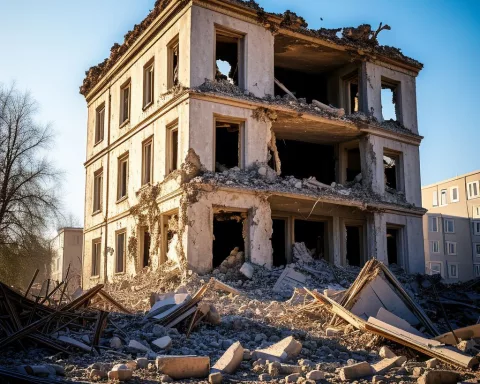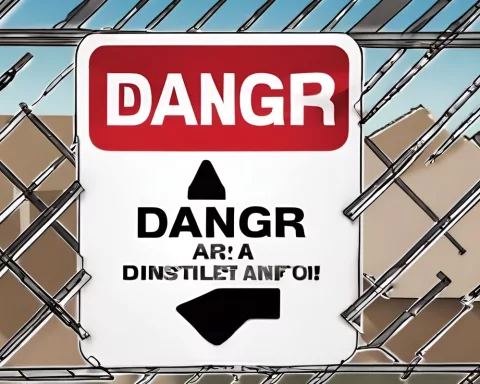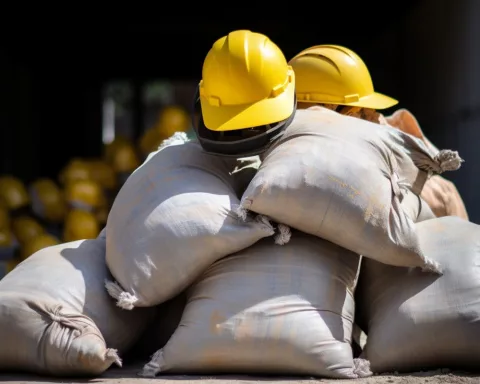The National Regulator for Compulsory Specifications (NRCS) in South Africa has issued a nationwide recall of Econo Cement’s CEM V/A S-V 32,5N due to potential hazards associated with non-compliant cement products. The recall highlights the importance of adhering to industry standards and using quality materials in construction projects to ensure safety and prevent potential hazards. Multi-level coordination within the industry and accurate reporting by media outlets, such as the South African Broadcasting Corporation (SABC), is crucial for successful execution of the recall and public awareness campaigns.
The National Regulator for Compulsory Specifications (NRCS) recently announced a nationwide recall of Econo Cement’s CEM V/A S-V 32,5N in South Africa’s construction sector. The recall was prompted by the NRCS’s commitment to upholding stringent safety and quality standards in the industry.
NRCS: Ensuring Health, Safety, and Environmental Protection
The NRCS, a government entity, is responsible for ensuring health, safety, and environmental protection in various industries. It enforces compliance with essential specifications and regulations, and in the case of Econo Cement, it responded to potential hazards associated with non-compliant cement products.
The Importance of Industry Standards
The cement involved in the recall falls within the SANS 50197-1 standard, which outlines cement types and their corresponding applications. The affected product, tagged as “CEM V/A,” is recognized as a composite cement with a specific compressive strength. Any deviation from the established standard could potentially compromise structural integrity, highlighting the severity of the recall.
The Implications of Subpar Materials
Cement is an essential element in construction, and the nationwide recall emphasizes the implications of utilizing subpar materials. These inferior products put financial investments and human lives at risk, making the systematic withdrawal of the product imperative.
Coordination Within the Industry
The successful execution of the recall requires coordination between distributors, retailers, and consumers. Streamlined, multi-level coordination within the industry is crucial to ensure comprehensive communication and cooperation.
The Role of Media Outlets in Public Awareness
The South African Broadcasting Corporation (SABC) played a vital role in disseminating information about the recall to the public. As the nation’s public broadcaster, the SABC is responsible for accurate reporting and plays a central function in public awareness campaigns.
Ensuring Adherence to Safety Standards
The recall underlines the importance of adherence to industry standards and highlights the critical role of stakeholders in maintaining quality. The NRCS’s commitment to proactive regulation enforcement reinforces its mandate to prevent potential hazards.
The Responsibility of Media Outlets
The unfolding developments remind the SABC and other media outlets of their responsibility to ensure that the public remains well-informed. This collective endeavor fosters trust and accountability among the public, the government, and the media.
Monitoring Progress in Rectifying the Situation
South Africa is closely monitoring progress in rectifying the situation and ensuring that safety standards are actively implemented in every home, building, and infrastructure project across the country.
What is the reason behind the Nationwide Econo Cement Recall in South Africa’s construction sector?
The recall was prompted by potential hazards associated with non-compliant cement products. The National Regulator for Compulsory Specifications (NRCS) responded to these hazards to ensure health, safety, and environmental protection.
Why is adherence to industry standards important in construction projects?
Adherence to industry standards is crucial to ensure safety and prevent potential hazards. The affected product, tagged as “CEM V/A,” is recognized as a composite cement with a specific compressive strength. Any deviation from the established standard could potentially compromise structural integrity, highlighting the severity of the recall.
What are the implications of using subpar materials in construction?
Inferior products put financial investments and human lives at risk, making the systematic withdrawal of the product imperative. The nationwide recall emphasizes the implications of utilizing subpar materials in construction.
What is the role of stakeholders in maintaining quality in construction?
The recall underlines the importance of adherence to industry standards and highlights the critical role of stakeholders in maintaining quality. Multi-level coordination within the industry is crucial to ensure comprehensive communication and cooperation.
How important is accurate reporting by media outlets in public awareness campaigns about product recalls?
Media outlets, such as the South African Broadcasting Corporation (SABC), played a vital role in disseminating information about the recall to the public. Accurate reporting by media outlets is crucial in public awareness campaigns to ensure that the public remains well-informed about the recall and potential hazards.












